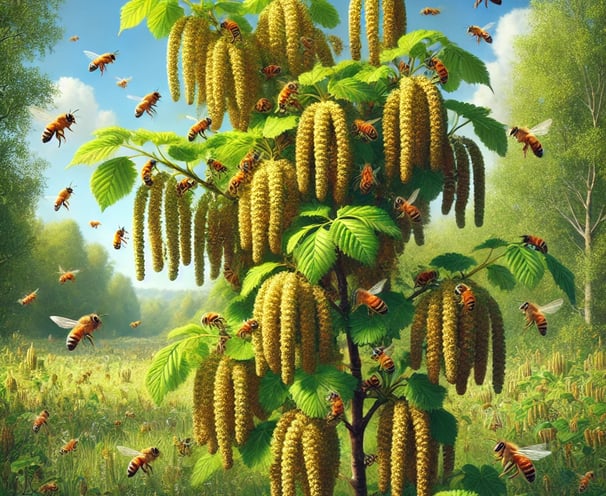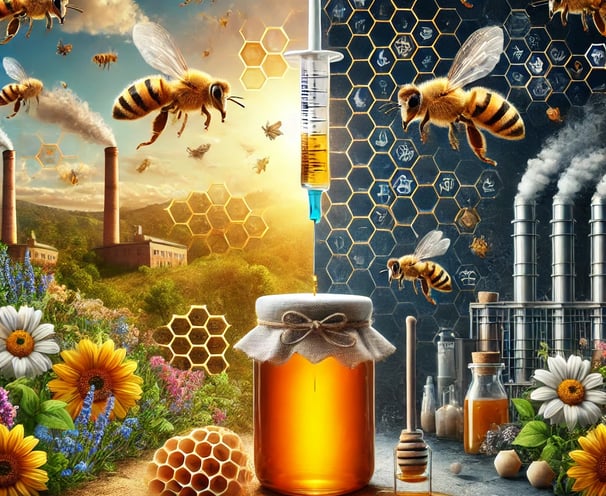
A short story about us
Meet the Mathieson family, the heart and soul behind Whitebridge Honey. Nestled in the stunning Scottish Highlands, our apiary is a true family endeavor. Aros, a retired policeman, and Neringa, a pharmacist with a passion for natural health, bring dedication and care to every jar. Their spirited six-year-old son Magnus adds his youthful energy by helping out with the bees. Together, we are committed to producing pure, artisanal honey that captures the beauty and essence of our local environment. Nestled in Whitebridge, we take great pride in our hands-on approach to keeping our bees healthy and thriving despite the region's unpredictable climate.


Our family...
Our experience...
With over 20 years of experience, our family-run business has honed the art of beekeeping in the challenging yet breathtaking Scottish Highlands. What sets us apart is our commitment to sustainable beekeeping practices and producing boutique honey that reflects the unique floral diversity of our local environment. Our honey isn’t just a sweet treat—it’s a powerhouse of natural benefits, rich in antioxidants, enzymes, and antibacterial properties that support immunity and overall health. Every jar represents our dedication to quality, tradition, and the well-being of both our bees and our customers.

How can I help honey bees?
A single mature tree can produce an amount of pollen (and nectar) equivalent to one acre of wildflowers, making trees vital sources of food for pollinators like bees. In this locality where there is a lack of early and late-season pollen providers, planting trees can help fill the gap. Species such as willow, alder, and Italian maple provide essential early-season pollen, while horse chestnut, sweet chestnut, sycamore, and common or Swedish whitebeam offer mid-season pollen. Ivy, which blooms late in the year, provides much-needed late-season pollen, which the bees require to start up the hive in the spring.
By planting these trees locally we can help create a more consistent food source for bees, improving their chances of survival.


Note. Honey bees have shorter tongues than some other pollinators so plants for "pollinators" do not necessarily help honey bees.

Honey fraud...
Honey fraud is a widespread issue involving the adulteration or mislabeling of honey to deceive consumers. This can include diluting pure honey with cheaper syrups like corn or rice syrup, misrepresenting its geographical origin, or falsely labeling it as organic or raw. Such practices undermine trust and can harm both consumers and ethical producers. Genuine honey contains unique health benefits like antioxidants and antimicrobial properties, but fraudulent honey may lack these qualities and pose health risks. To combat honey fraud, consumers are encouraged to buy from reputable sources and support small-scale, transparent producers who prioritize quality and authenticity.


